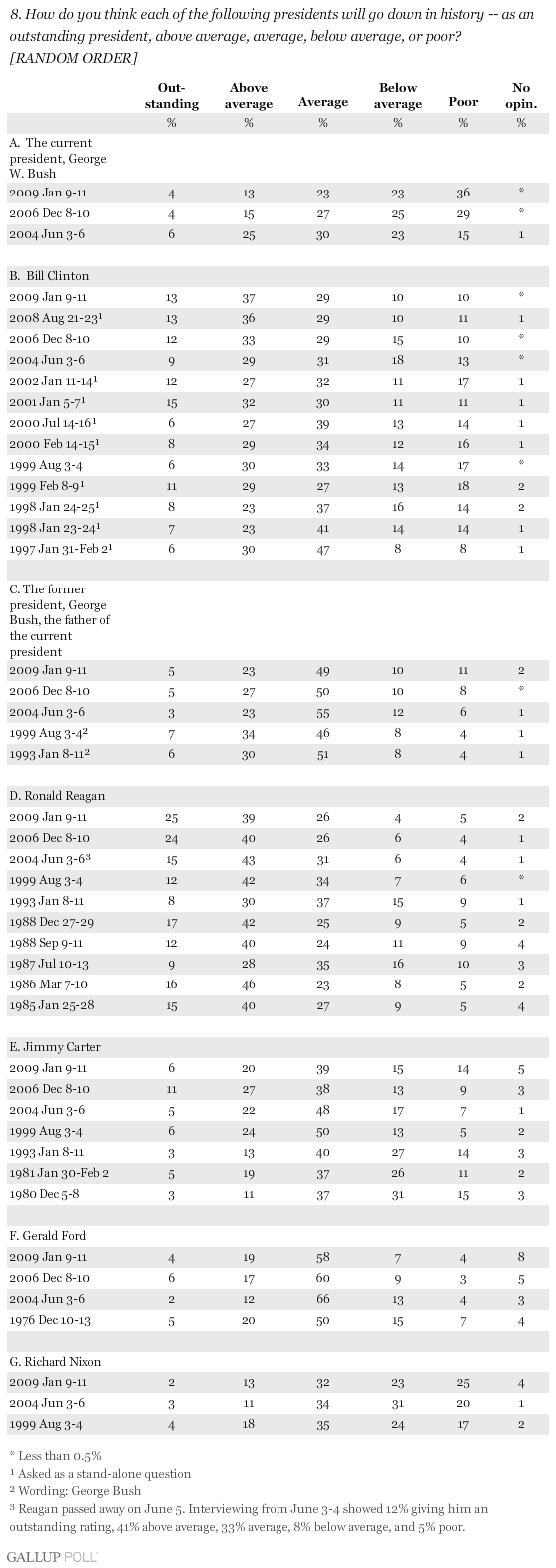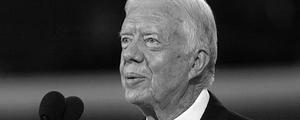PRINCETON, NJ -- A mere 17% of Americans believe George W. Bush will go down in history as an outstanding or above-average president -- out of sync with Bush's own confidence that his presidency will be appreciated with time. Another 23% of Americans predict he will be remembered as "average" while 59% say "below average" or "poor."
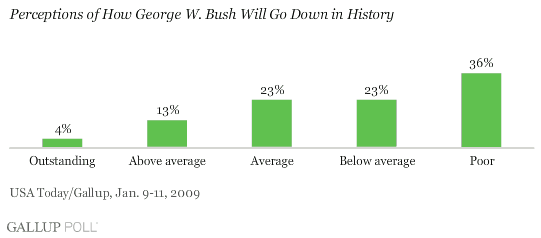
The bleakness of Americans' current forecast for Bush's historical stature is highlighted by the contrast between their ratings of Bush and those of several former U.S. presidents.
According to the Jan. 9-11 USA Today/Gallup poll, Americans think four of the last seven presidents are more likely to be remembered in positive than in negative terms. This includes highly praiseworthy ratings for Ronald Reagan and Bill Clinton. Only Bush, Jimmy Carter, and Richard Nixon -- the only U.S. president ever to have resigned from office -- receive more subpar than stellar reviews.
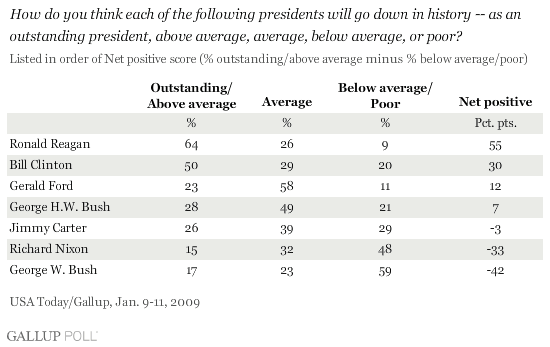
Although Bush is about tied with Nixon in perceptions that history will remember him as an outstanding or above-average president, he fares worse than Nixon on the basis of his "below average" and "poor" ratings: 59% for Bush vs. 48% for Nixon. As a result, Bush's net positive score (total percent outstanding or above average minus total percent below average or poor) is worse than Nixon's: -42 for Bush versus -33 for Nixon.
There is also a bit of irony embedded in the presidential rankings. President Bush falls well below his father, George H.W. Bush, whose defeat in 1992 was reportedly one of Bush's motivations for running for governor of Texas in 1994 and, later, for president.
Poor Stature Ratings Tethered to Low Job Approval
Public perceptions about Bush's standing in history were nearly as negative when last measured about two years ago. At that time, Bush's overall job approval rating was also anemic: 38% approved of Bush's job performance in December 2006 compared with 34% today.
By contrast, in June 2004, five months before Bush's re-election and at a time when his approval rating stood at 49%, nearly as many Americans believed history would remember his presidency as outstanding or above average as below average or poor (31% vs. 38%).
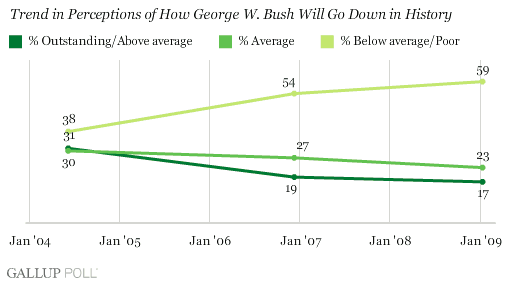
Bush's image could certainly improve over time, not unlike the changes seen in Americans' retrospective approval ratings of John F. Kennedy, Reagan, Carter, and Gerald Ford. All of these presidents had higher "retrospective approval" ratings in a June 2006 Gallup Poll compared with their final approval ratings upon leaving office. However, the 2006 approval scores for Clinton, George H.W. Bush, and Nixon were about the same as their final presidential approval ratings, and Lyndon Johnson's score was slightly worse. Thus, the nostalgia effect is not a sure bet.
Republicans
Gallup's final job approval rating on Bush from the Jan. 9-11 poll shows 34% of Americans approving and 61% disapproving of how Bush is handling his job as his presidency winds down. That includes a 75% approval rating from members of the president's own party. Nevertheless, only 38% of Republicans believe Bush will be remembered as an outstanding or above-average president. They are just as likely to say history will record him as average (37%).
Most political independents and Democrats discount Bush's place in history, with majorities saying he will be considered below average or poor.
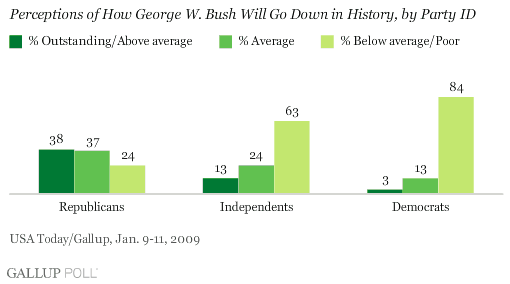
Republicans' forecast for Bush's long-term image is more positive than their predictions for two of the previous four Republican presidents -- Ford and Nixon -- but less positive than their predictions for Bush's father (George H.W. Bush) and Reagan.
The reason Ford outranks George W. Bush in Americans' overall perceptions of being remembered as an outstanding or above-average president is because of independents' and Democrats' much more positive ratings of Ford than of Bush.
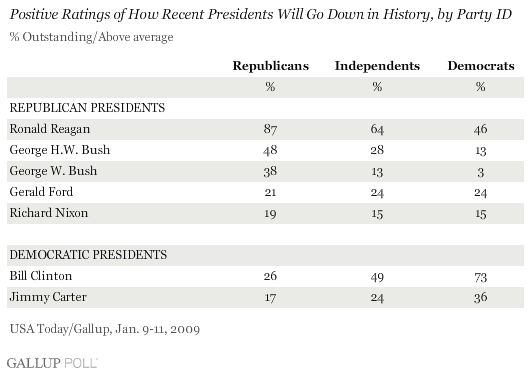
Bottom Line
While Bush, Vice President Cheney, and other members of the outgoing administration foresee vindication for the decisions and policies that have made Bush broadly unpopular in his time, many historians have already declared Bush "the worst president ever."
If Bush's reputation is to improve, it will most likely depend on a positive outcome for Iraq in the coming years, but also on how well his successors manage the same global and economic challenges he has faced. While it is impossible to predict how those factors will play out, there is much more room for his reputation to improve than to worsen. As of today, a solid majority of Americans perceive that Bush's long-term reputation will be subpar. That is the worst forecast for any recent president, including Nixon.
Survey Methods
Results are based on telephone interviews with 1,031 national adults, aged 18 and older, conducted Jan. 9-11, 2009. For results based on the total sample of national adults, one can say with 95% confidence that the maximum margin of sampling error is ±3 percentage points.
Interviews are conducted with respondents on land-line telephones (for respondents with a land-line telephone) and cellular phones (for respondents who are cell-phone only).
In addition to sampling error, question wording and practical difficulties in conducting surveys can introduce error or bias into the findings of public opinion polls.
